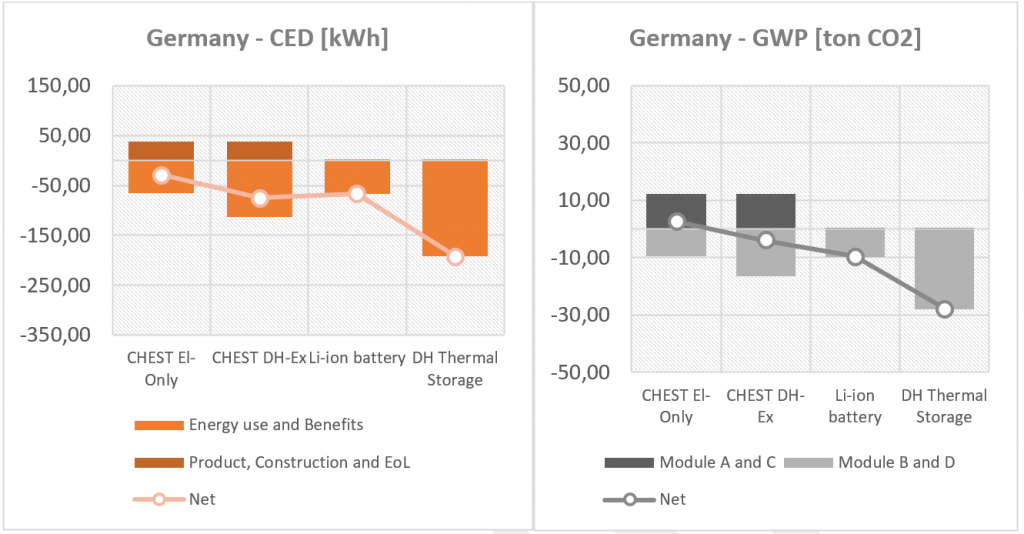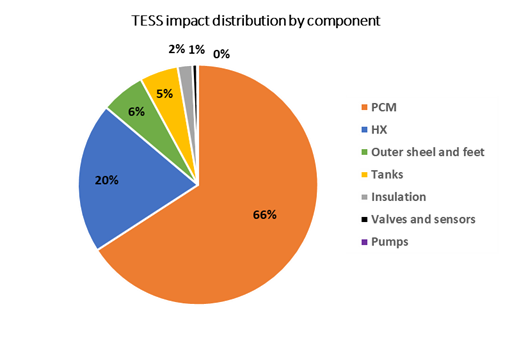The CHESTER project conducted a complementary study to assess the energy and environmental impacts of CHEST systems from a lifecycle perspective, using the OpenLCA tool to calculate impacts and Global Warming Potential (GWP) and Cumulative Energy Demand (CED) as main indicators.
The Life Cycle Assessment (LCA) considered four main stages of life cycle operations: Product and Construction, Use, End-of-Life (EoL), and Benefits and loads beyond system boundaries. Product, construction and EoL were considered as environmental emissions, while use and benefits (such energy savings expected due to CHEST implementation) represented avoided emissions (negative values) of CHEST system implementation.
The LCA results presented refer to a CHEST system using a lithium based PCM material and are expressed in terms of GWP (ton CO2) and CED (KWh) for three locations, with the results for Germany shown due to representativeness to the project.

Analysing results from a CED perspective: the implementation of CHEST system holds larger benefits than the overall environmental burden; and from a GWP perspective, benefits are only shown in the CHEST DH Ex configuration, since CHEST El Only impacts are slightly superior than its benefits. Ultimately, a CHEST system with District Heating represents the best design, competing even with Li-ion battery technologies in overall benefits.

This LCA study identified that the selection of the PCM material is critical to the overall project benefit, and it becomes a representative parameter equivalent to technical properties. Determination of the PCM should therefore consider not only the technical system demands, but also the environmental impacts from a LCA point-of-view.
Further research is necessary to address the environmental impacts of CHEST production and waste management, as well as an analysis of the environmental impacts of competing technologies.
In conclusion, the CHESTER project represents an effort to set up renewable energy generation systems worldwide that are essential to access sustainable development within energy supply systems, and it can be an interesting and competitive option after further research and work is done.


